Greetings from the wonderful world of animals, where diversity knows no bounds! We will study the interesting topic of the variety of lip structures found in different species. Animals with big lips are here to show us how to combine practicality and individuality, from the beautiful hippos of Africa to the wily orangutans of Asia. Let’s explore the unique qualities, purpose and interesting role of these lips in the life of these attractive large-lipped guide animals.
Table of Contents
1- THE HIPPOS
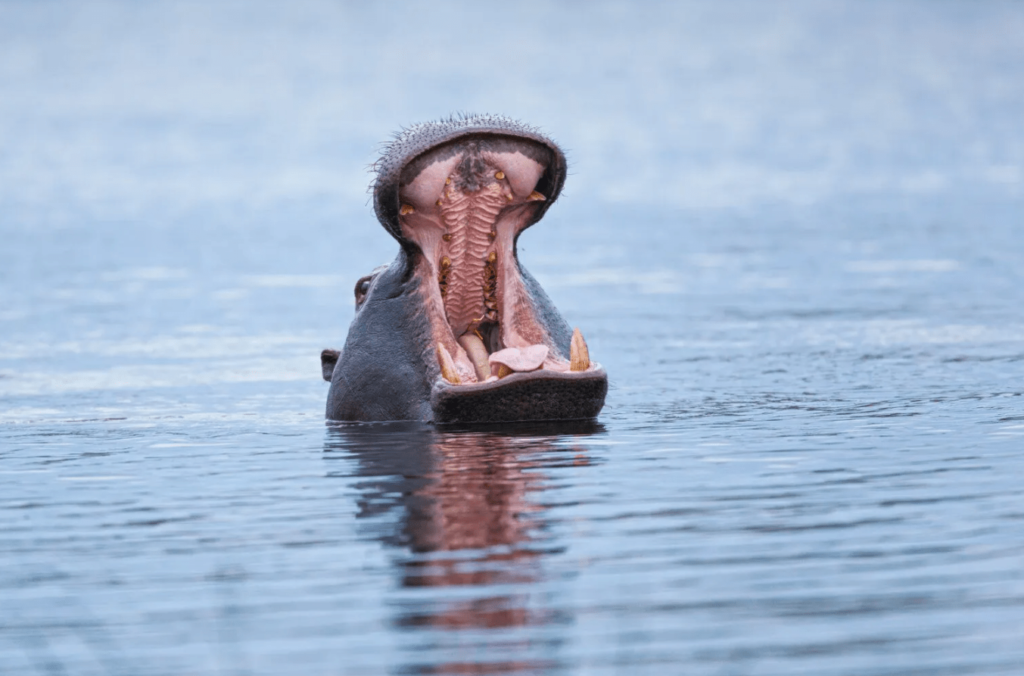
- Habitat : Sub Saharan Africa, Primarily in rivers & lakes
- Species : Hippopotamus amphibius
The third largest land animal, the hippopotamus, has large, powerful lips about four feet long! These lips act as a tool to feed, express and protect themselves at the same time. Hippos show their strength by holding and pulling their lips while eating. Their lips also help in communication, producing different sounds to express happiness or when they are having fun. When they fight, male hippos even use their lips as weapons, ripping pieces of meat from their opponents. Amazing creatures animals with big lips.
2- ORANGUTANS
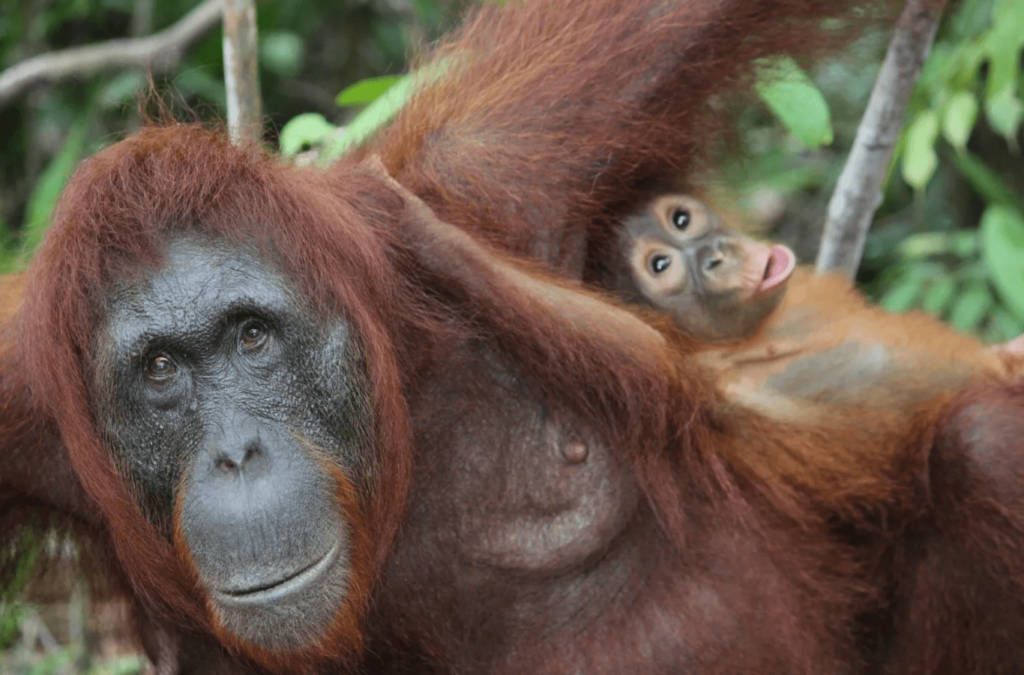
- Habitat : Rainforests of Malaysia & Indonesia
- Species : Pongo
The genius of the giant monkey family, the orangutan, inhabits the rainforests of Indonesia and Malaysia. These people use their large lower lip to enjoy delicious dishes and communicate. Orangutans make screeching sounds by sucking their lips when they are angry. Before eating, they also tested the texture of different foods with their lips. And what do you know? Even when they smile, orangutans can express their emotions through their lips. What a great creature animals with big lips.
3- NAPOLEON FISH
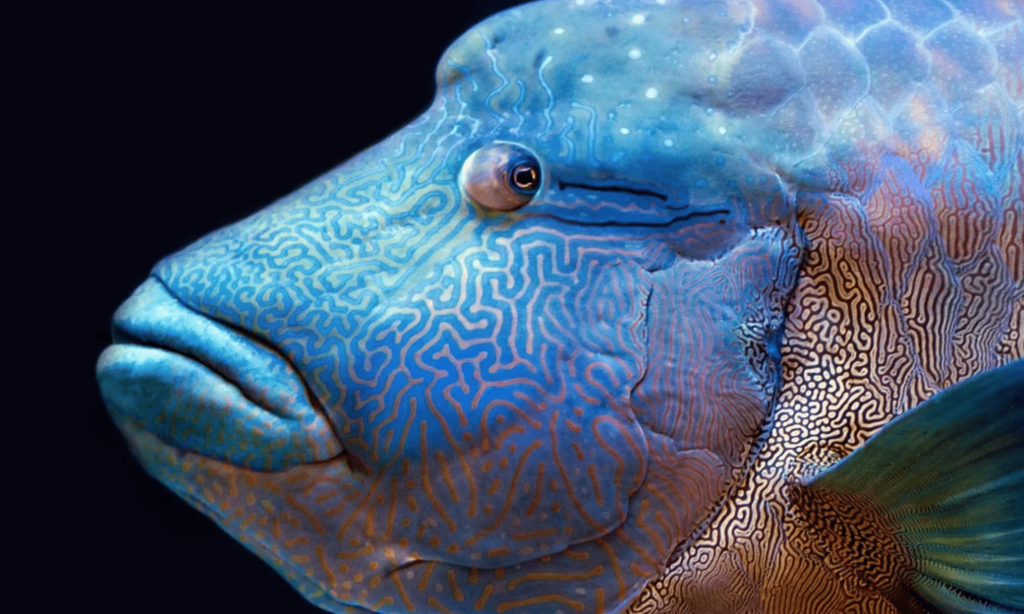
- Habitat : Native to the Indo-Pacific region
- Species : Cheilinus undulatus
Let’s explore the world of the Napoleon fish, a giant fish native to the Indo-Pacific that can swim. One of their impressive hunting skills is their large mouth. They attract molluscs and small fish, with prominent foreheads and large lips. Apparently their lips make fish better hunters, although we’re not sure how they do it. The Napoleon fish is a popular aquarium fish although it is in danger of extinction because it can change color and live happily with other fish.
4- FLOWERHORNS
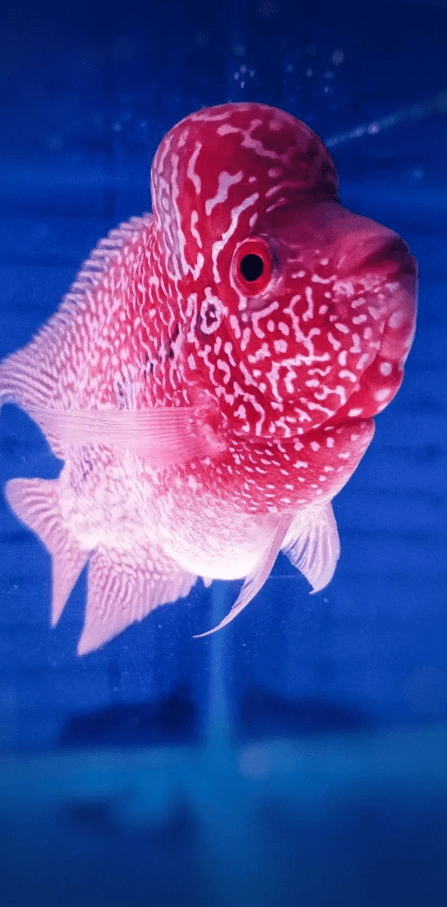
- Habitat : Originally bred in Malaysia, now popular in aquariums worldwide
- Species : Flowerhorn cichlid
See the colorful freshwater hornbill that is the dominant species in aquariums around the world. Their wide lips and forehead give them an unusual look. The lips add to the overall appeal of this lively fish, although we’re not sure what else they can achieve other than looking great. The flower hornfish is admired by aquarium enthusiasts for its distinctive qualities.
5- CAMELS
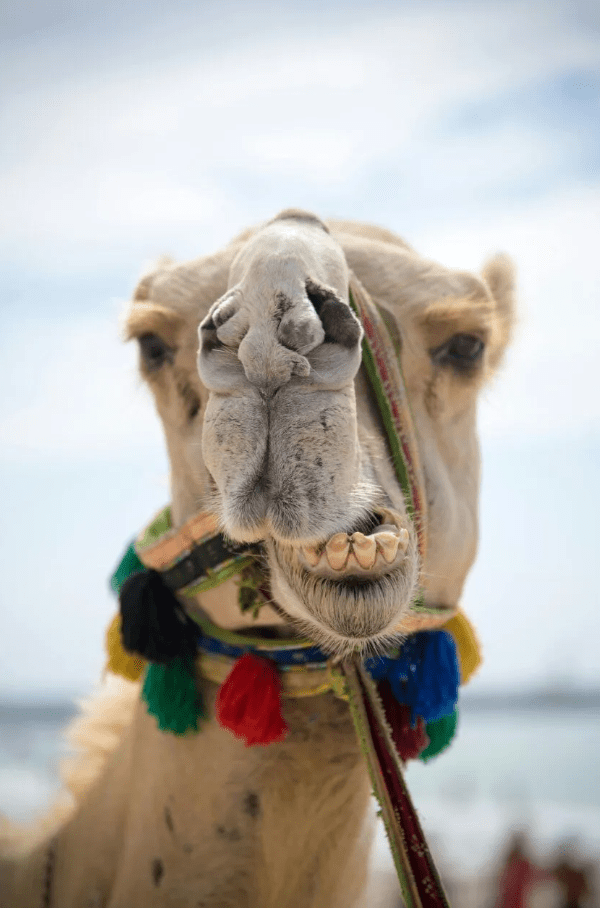
- Habitat : Arid regions of Asia and Africa
- Species : Camelus
camel Their lips are not only large but also thick and rough, with the upper lip divided into two giving the impression that they have three lips. The lips that allow camels to survive in arid areas are like superpowers. Firstly, they enable camels to graze on a wide range of plants, including the toughest bushes, without risk of injury. Second, the lips act as a moisture barrier, which is especially important in dry, dehydrated environments. Camels are one of the largest animals with big lips, just like hippos.
6- PROBOSCIS MONKEYS
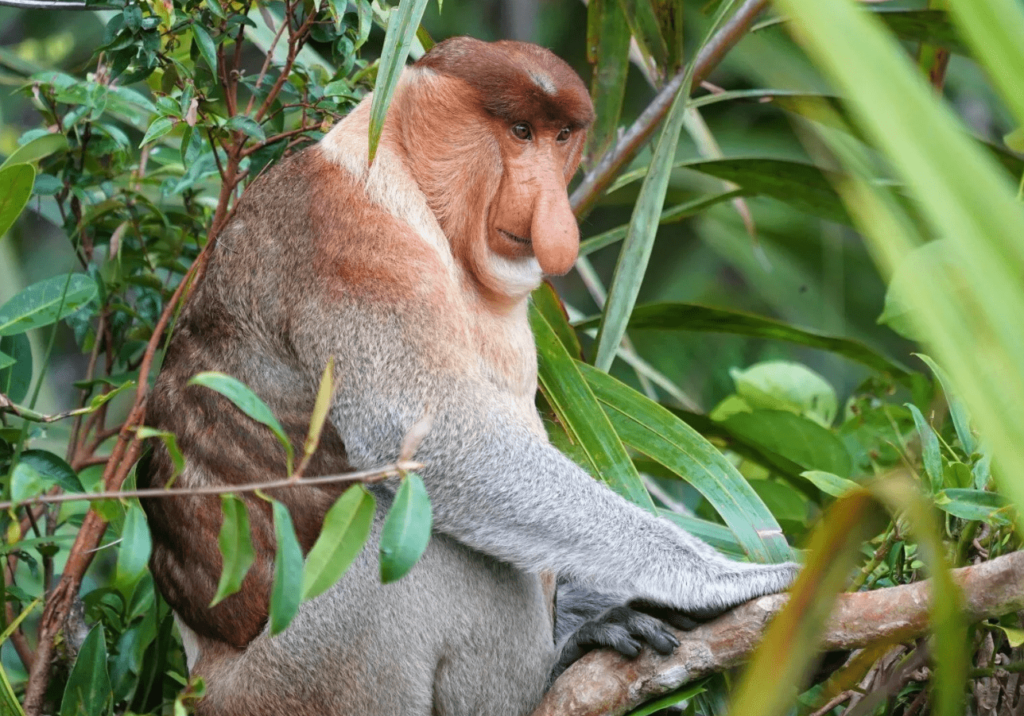
- Habitat : Borneo in Asia
- Species : Nasalis larvatus
Now, let’s go to Kalimantan to meet the Proboscis Monkey, which is distinguished by its big lips and big nose. While the nose is the center of attention for your partner, the lips serve as two tools for communication and eating. These monkeys make different sounds by forming their lips in different ways. Although female and young monkeys cry differently, adult males howl to assert their dominance over the group. Unfortunately, their numbers are declining due to deforestation.
7- TRIGGERFISH
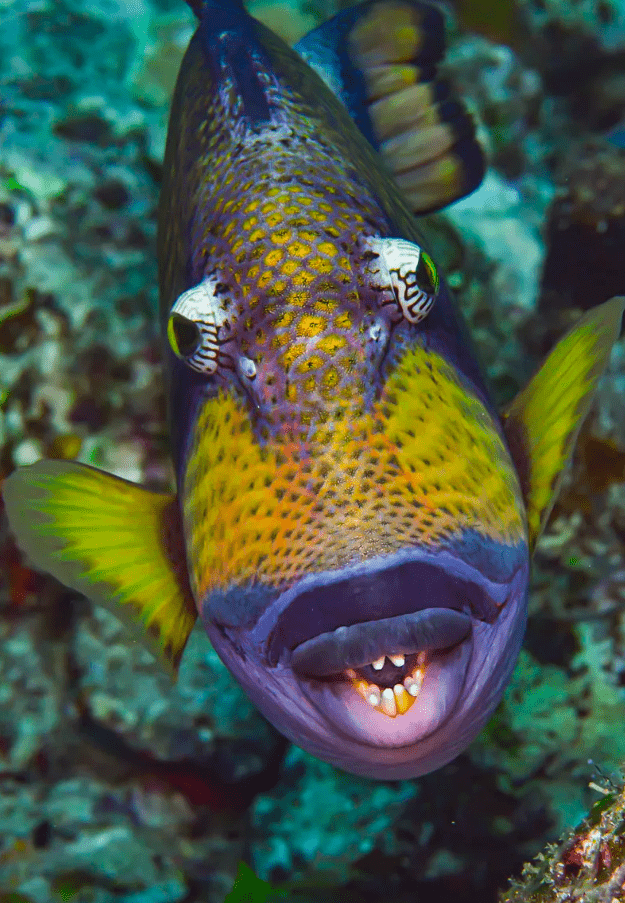
- Habitat : Tropical and subtropical oceans worldwide
- Species : Balistidae
When you are diving in the sea, you can meet bullet fish, which are water stars with pouty lips that live in shallow waters. They are known for their bright colors, but they also have a smiling face because of their big pouty lips. Although its main function is to find food, the triggerfish’s lips add to its appeal. People were shocked to learn that the viral photo of the smiling trigger was real!
8- STAR SAPPHIRES
- Habitat : Lake Malawi in East Africa.
- Species : Pseudotropheus socolofi
You can find fish with an interesting mating phenomenon called Star Sapphires by visiting Lake Malawi in Tanzania. Men’s lips become more visible as they age, but are almost invisible when they are younger. Why? to attract partners! This is like men who are born without a beard, but eventually grow it. Their distinctive mating activity, which adds an interesting twist to their aquatic environment, relies heavily on their animals with big lips.
9- BELUGA WHALES
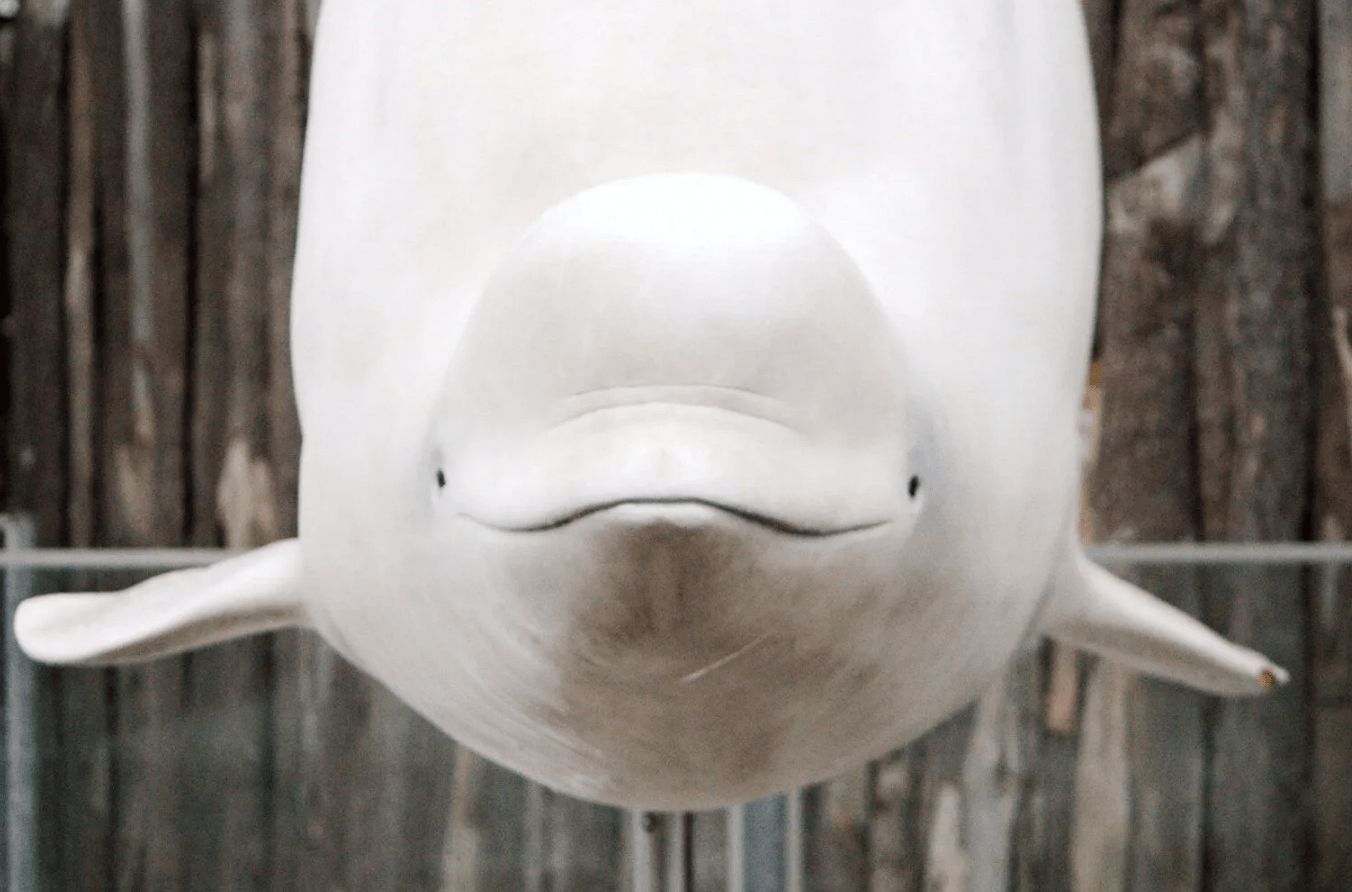
- Habitat : Arctic and sub-Arctic waters
- Species : Delphinapterus leucas
Dive into the Arctic seas, and you’ll meet beluga whales, solitary creatures that are about 15 inches long and have very large, flexible lips! Not only do these lips look good, but they also help the whales’ ability to filter food from the water and catch animals. What’s more? During underwater discussions, beluga whales can make facial movements and human sounds thanks to their lips. They seem to be talking to each other in a particular way. The Beluga Whale is one of the largest creatures animals with big lips.
10- BIG-LIP DAMSELFISH
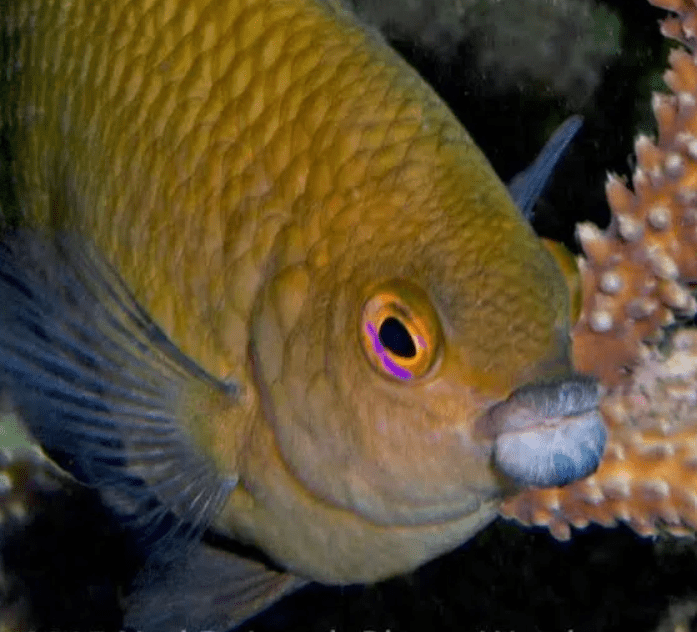
- Habitat : Indo-Pacific region
- Species : Neopomacentrus
Discover the big-lipped croaker, a small tropical fish with – you pray – big, prominent lips, as you explore the Indo-Pacific region. When hungry, these lips work like magic to filter prey such as worms and crabs out of the water. Their lips, which have extraordinary adaptations that help them live, enable them to be great hunters.
11- WHITE RHINOS Animals With Big Lips
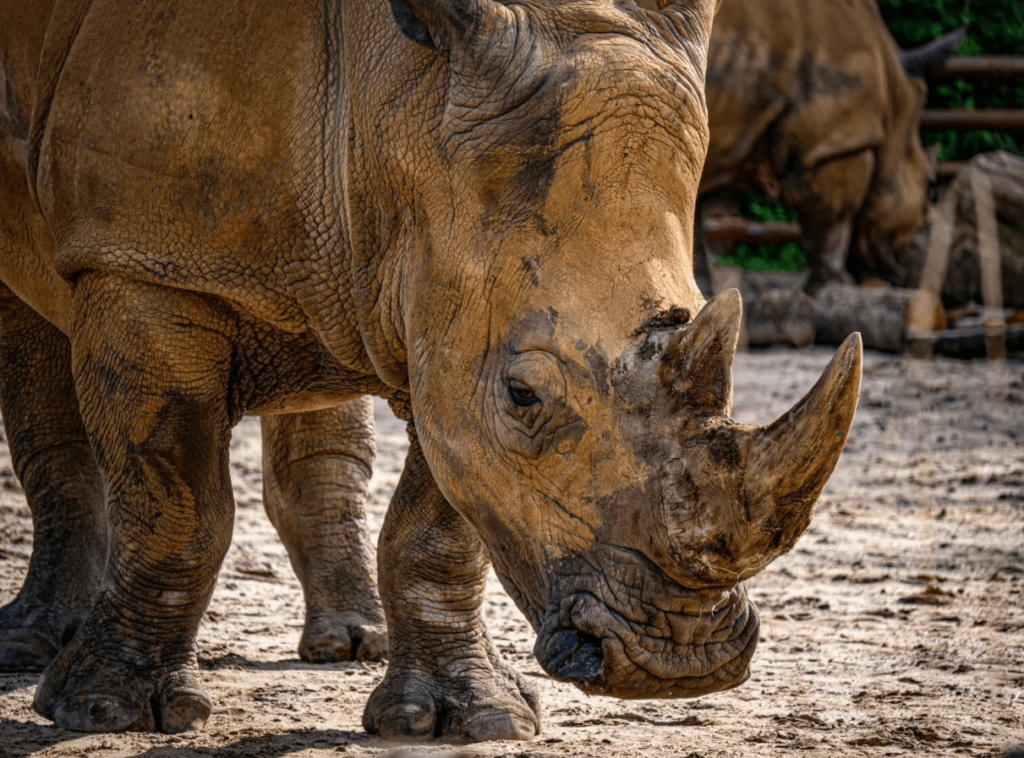
- Habitat : Grasslands and savannas of Africa.
- Species : Ceratotherium simum
Spot the white rhinoceros, the second largest land mammal, as you walk across the African Savannah. Their lips are square and large, and they often pull grass from the ground. The main feature that distinguishes it from the black rhino is its lips. Their wide lips allow them to forage on low foliage, suggesting that certain traits play a role in their survival.